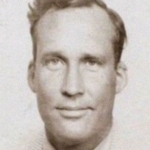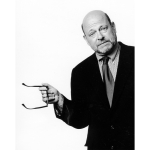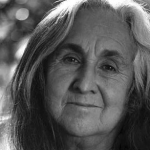I lived here nearly 5 years before I could
meet the middle western day with anything approaching
Dignity. It’s a place that lets you
understand why the Bible is the way it is:
Proud people cannot live here.
The land’s too flat. Ugly sullen and big it
pounds men down past humbleness. They
Stoop at 35 possibly cringing from the heavy and
terrible sky. In country like this there
Can be no god but Jahweh.
In the mills and refineries of its south side Chicago
passes its natural gas in flames
Bouncing like bunsens from stacks a hundred feet high.
The stench stabs at your eyeballs.
The whole sky green and yellow backdrop for the skeleton
steel of a bombed-out town.
doing strong things in
Showers of steel-spark? The dark screen cracking light
and the furnace door opening with a
Blast of orange like a sunset? Or an orange?
It was photographed by a fairy, thrilled as a girl, or
a Nazi who wished there were people
Behind that door (hence the remote beauty), but Sievers,
whose old man spent most of his life in there,
Remembers a “nigger in a red T-shirt pissing into the
black sand.”
It was 5 years until I could afford to recognize the ferocity.
Friends helped me. Then I put some
and a farm where they let me shoot pheasant.
Standing in the boat one night I watched the lake go
absolutely flat. Smaller than raindrops, and only
Here and there, the feeding rings of fish were visible a hundred
yards away — and the Blue Gill caught that afternoon
Lifted from its northern lake like a tropical! Jewel at its ear
Belly gold so bright you’d swear he had a
Light in there. His color faded with his life. A small
green fish . . .
All things considered, it’s a gentle and undemanding
planet, even here. Far gentler
Here than any of a dozen other places. The trouble is
always and only with what we build on top of it.
There’s nobody else to blame. You can’t fix it and you
can’t make it go away. It does no good appealing
To some ill-invented Thunderer
Brooding above some unimaginable crag . . .
It’s ours. Right down to the last small hinge it
all depends for its existence
Only and utterly upon our sufferance.
Driving back I saw chicago rising in its gases and I
knew again that never will the
Man be made to stand against this pitiless, unparalleled
monstrocity. It
Snuffles on the beach of its Great Lake like a
blind, red, rhinoceros.
It’s already running us down.
You can’t fix it. You can’t make it go away.
I don’t know what you’re going to do about it,
But I know what I’m going to do about it. I’m just
going to walk away from it. Maybe
A small part of it will die if I’m not around
feeding it anymore.


















Comment form: